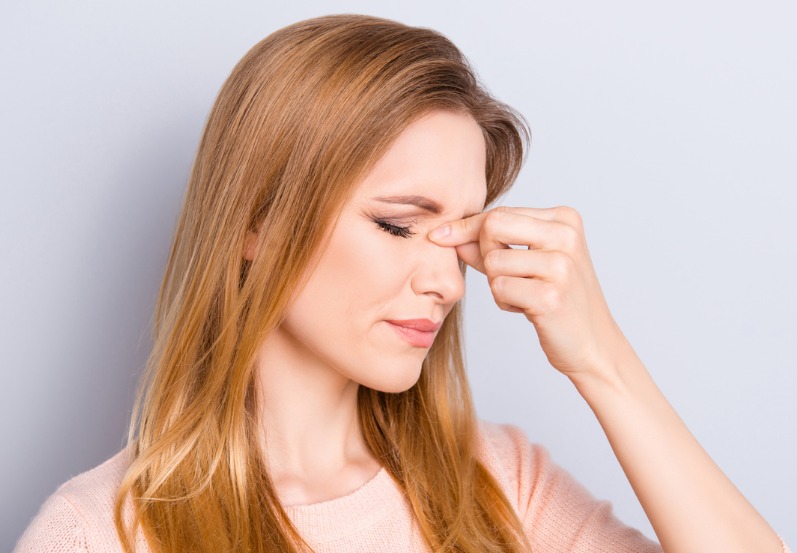Sinusitis: Everything You Need To Know

Within the skull is a connected system of hollow cavities, some almost an inch across, called sinuses. These air pockets lighten the skull and improve the voice, but more importantly, they produce mucus that protects the nose from pollutants, micro-organisms, dust, and dirt. When the lining in our sinuses is inflamed, fluid fills the cavities, germs grow, and an infection develops.
This is called sinusitis, or a sinus infection, and it causes uncomfortable symptoms such as facial pressure, stuffy nose, cough, congestion, and more. If you are among the many people who struggle with these symptoms, read on to find out everything you need to know about sinusitis.
Acute Versus Chronic
It is important to know that there are 2 types of sinusitis: acute and chronic. Acute sinusitis is accompanied by the common symptoms of a sinus infection and lasts only a short period of time. It can be caused by a cold, viral infection or allergies and is usually treated with home remedies.
When your infection lasts longer than 12 weeks, it becomes chronic. Common causes include nasal polyps, a deviated septum, or respiratory tract infections. Luckily, there are many treatment options such as balloon sinuplasty, immunotherapy, antibiotics, and surgery.
Treatment Options
The key to finding the right treatment option for you is based on the cause of your sinusitis. For instance, if your sinusitis is due to allergies, then decongestants alone will probably not help much. If you think you know the cause, the first step you can take is to try self-treatment. Whether you suffer from acute or chronic sinusitis, there are a wide variety of treatment options available. Save yourself a trip to the doctor and try these at home remedies:
- Saline nasal spray or corticosteroids
- Decongestants
- OTC pain relievers
- Neti Pot
- Steam inhalation
- Drink plenty of water
- Immune-boosting foods such as garlic and ginger
- Aromatherapy
If your sinusitis is persistent against these treatments, professional medical treatment may be required. Your doctor can perform an exam and possibly imaging tests to pinpoint the root cause and provide you with a recommendation for treatment.
Is It Sinusitis or Just Allergies?
You thought it was a cold, but your nose is still stuffy after a week and it’s allergy season. So, do you just have bad allergies or is it sinusitis? It can be hard to tell because the symptoms are virtually the same, but there are a few key differences to look out for.
Allergies:
- Runny nose
- Sneezing
- Watery or itchy eyes
- Wheezing
Sinusitis:
- Thick, colored mucus
- A painful feeling of swelling around the forehead, eyes, and cheeks
- Headache
- Pain in your teeth
- Post-nasal drip
- Bad breath
- Fatigue
- Light Fever
Additionally, paying attention to when your symptoms start, how fast they develop, and when they go away is important in determining whether it is allergies or sinusitis. Allergy symptoms appear when you come into contact with the allergen and may suddenly end when the trigger is removed. If your symptoms appear only during a certain time of year, you may have seasonal allergies, but if they are year round you may have allergens in your home. Often times, people with chronic allergies experience allergic rhinitis.
When it comes to sinusitis, the most common time it appears is after a cold. The cold itself will typically go away within a week, but if symptoms last longer than that you may have developed a sinus infection.
If you suffer from allergies, acute or chronic sinusitis, the Allergy Experts can provide a diagnosis and put you on the right path to treatment and relief. Call New York Allergy and Asthma at (212) 517-3300 or make an appointment online today!










